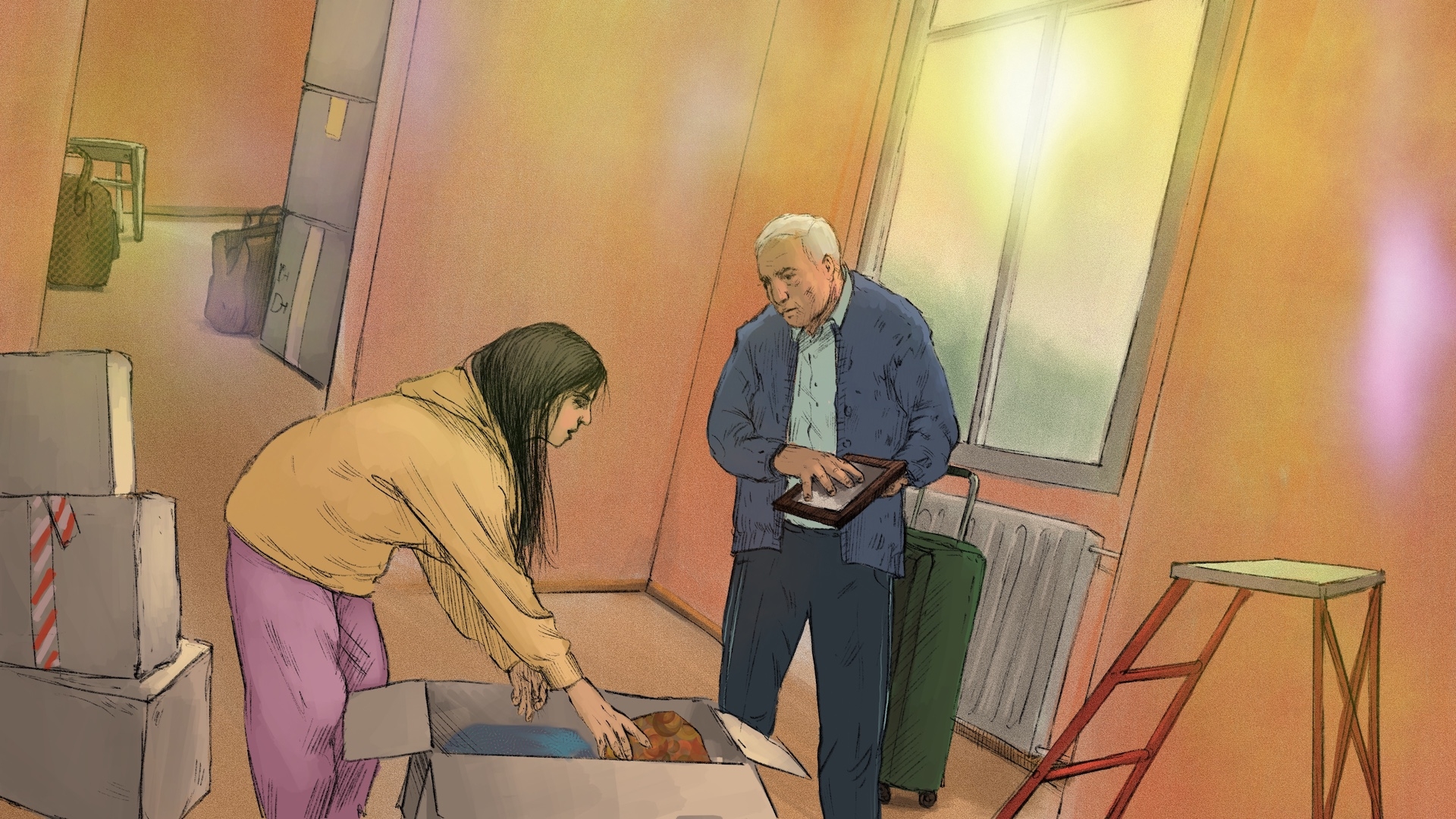
Although 27-year-old Shahla Karimli has never seen her hometown of Shusha, she spent her whole life dreaming of the day she could return.
“From the stories my father told me, I imagined Shusha as a kind, small town where everyone knows and helps each other. When someone is going through something, the entire community gathers to support them.”
Shahla learned about Shusha through the memories of her father, Karim Karimli, who was born and lived there until the conflict between Armenia and Azerbaijan over Nagorno-Karabakh erupted in 1988. The conflict escalated into a full-scale war in 1992, spreading beyond Nagorno-Karabakh’s territories.
A journalist and writer, Karim Karimli’s family is one of 21 families (85 people) who were relocated to Shusha in June 2024.
Belonging
Shahla recalls her childhood memories of constant displacement as her family searched for abandoned houses to live in and moved frequently due to ongoing challenges.
"The long walks to and from school, a bathroom that didn’t work in winter, having to bathe elsewhere because we couldn’t afford travel expenses—it’s all tied to poverty. But if we hadn’t been displaced, we wouldn’t be in this situation. Finding a job was difficult after we were displaced, so poverty was always at the forefront of my mind."
This transient lifestyle continued into the 2000s, ending in 2018 when the government provided them a house in Gobu Park, a residential complex for internally displaced persons (IDPs) 25 km from Baku’s city center. Yet Shahla never felt at home in Baku.
"Although I had never lived in Shusha, I felt connected to the city. I believe a person’s home is where they feel they belong. I never felt I belonged to Baku. I didn’t pay tuition fees because of exemptions granted to IDPs, but some people would say, ‘You should be happy; you don’t pay fees because you’re displaced.’ We were often asked, ‘When are you leaving Baku?’ or during the war, ‘Why aren’t your people fighting?’ These constant reminders made me feel like I didn’t belong in Baku."
Shahla’s father, Karim, remembers the day he left Shusha—May 8, 1992. Escaping through the Lachin corridor, he never imagined his departure would last 30 years. Asked why he returned after so many years, Karim seemed puzzled by the question: “A person doesn’t need a reason to return to their ancestral home,” he replied.
When Shusha was recaptured by Azerbaijan on November 8, 2020, the Karimli family had to wait a few more years to return, as their homes had been destroyed. "They destroyed one of our houses, put another in disrepair, and blew up the third. We had to wait until new residential buildings were built. Although I visited Shusha many times, I could only stay for a few hours or days."
It took 32 years and two days for Karim to return to Shusha with his family.
Unlimited Bliss
“Unlimited bliss” is how Karim Karimli described his feelings on May 10, 2024, the day he finally returned to Shusha. For Shahla, her father’s dedication reinforced her own connection to the city. "My father fought for years to return to Shusha. This made me feel even more connected to it."
When Shahla entered Shusha for the first time, it surpassed her expectations.
"The reality was even more beautiful than the image in my imagination. I got goosebumps when I arrived, and now I feel emotional just talking about it. Seeing my father return home was an overwhelming moment."
Karim has devoted himself to preserving and promoting Shusha’s cultural heritage. He has published 15 books, including poetry, artistic prose, and research. Since 1998, he has curated a collection called the "Karabakh Museum," featuring items from Nagorno-Karabakh.
"I want to create a large museum showcasing musical instruments, chests, wool combs, carpets, and other traditional Karabakh items. I’ve also collected paintings from artists to create a gallery. Additionally, I’m working on information booklets and websites about Shusha. I have many plans, and we are slowly working on them."
Family traditions and cultural heritage are central to Karim’s vision. "I hope my children will continue my work and bring innovation to Shusha."
Shahla, however, has struggled to adjust socially. Frequent work trips to Baku have limited her opportunities to connect with local youth. Despite these challenges, she remains optimistic and actively works to reconnect with her community.
"I share photos and videos from Shusha, and my friends are inspired. Everyone writes to me, saying they want to visit and asking me to show them around. It’s hot in Baku, but here, even when it’s 30 degrees, it’s hailing. They love it and are eager to come."
For Shahla, returning to Shusha signifies more than a physical relocation.
"Returning to Shusha means so much to me. I can’t find the words to express it."
Illustration: ToraKhanim Aghabayova